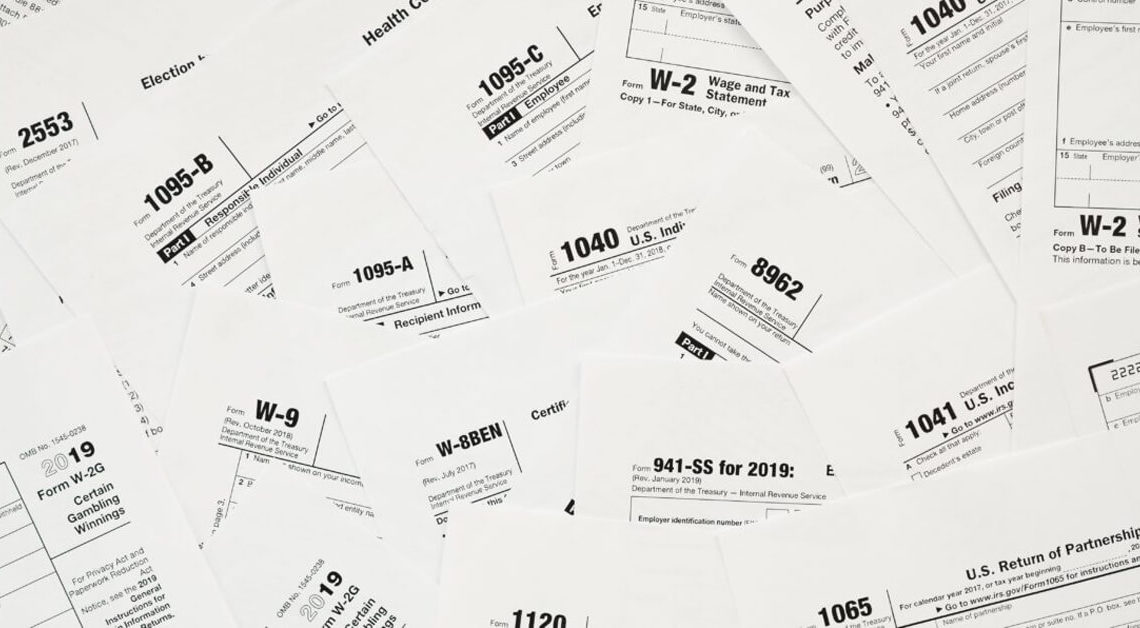Every year around, January is the time for most businesses to give out Form 1099. It is something that you need to file with the government if your business or organization has paid an independent contractor or a freelance worker. This rule applies whether the money was paid in cash or check — it doesn’t matter.
For example, let’s say a business hired a web designer and paid the contractor $3,500 over the course of a year for designing the company’s website. The business will send out Form 1099 to report the transaction with the IRS.
This form has a lot of information that you as the business owner need to fill out. You have to fill out what was paid, who it went to, and how much they were paid. Basically, everything printed on the form needs to be filled out with correct information so that when tax time comes around, the government knows how much money your business made and has a record of all sources of income other than employers or other common payrolls.
You must ensure that you file this form with the IRS on or before the deadline, which varies slightly per state. In Texas, it can be electronically filed with or mailed to the IRS together with form 1096 by January 31st. So, make sure not to miss the deadline to avoid penalties.
Types of Form 1099
Since there are numerous ways of earning income, there are also different types of 1099orm IRS f. In fact, there are about 20 or more, but we’ll briefly discuss the most common types so you will know what applies in your case.
1099-INT
If you earned more than $10 in interest for the tax year, use form 1099-INT. If you have a time deposit that earns more than $10 yearly, the bank will send out 1099-INT form. The same for brokerage and investment firms.
1099-DIV
If you received distributions from stocks, mutual funds, or exchange traded funds that were not reported to the IRS, then use form 1099-DIV. You can use this form to compute your capital gain/loss for the year as well as determine how much tax will be withheld from dividends and distributions. This form is common among stock traders and investors.
1099-MISC
If you were paid as a subcontractor or independent contractor as opposed to being an employee, then use form 1099-MISC. Basically, if you’re working for someone and not getting a W2 from them, then that employer has to file this form. Likewise, money received from awards and cash prizes will have to be reported using form 1099-MISC. If you’re not sure what type of form to file, you can also use form 1099-MISC.
1099-R
This is the document to use for those who made withdrawals from their retirement accounts other than a 401k plan. Distributions from traditional IRAs, Roth IRA’s, 403(b) plans, government or military retirement pay are all included. Other examples of retirement income include pensions and annuities.
1099-S
If you sold your property to another party during the year, then use form 1099-S. A real estate agent will use this form to report the sale of a property on behalf of another individual or business owner. You can also use this form if someone gave you land instead of selling it for money.
1099-G
Form 1099-G is filed if you received unemployment compensation, state income tax refunds or rebates, and other government grants. Unemployment compensation is taxable just like any other income so the IRS requires to report this on Form 1099-G.
1099-NEC
This form is for non-employee compensation amounting to more than $600 during the tax period. For example, if a business paid more than $600 to a contractor like a graphic designer, a website developer, or a content writer, it will send out form 1099-NEC to report the non-employee earnings.
1099-B
If you have traded stocks or securities throughout the year, you need to use this form. Whether it’s short sales, stock options, or other investments, fund brokers must file a 1099-B for every sale over $10. This rule even applies if there were multiple sales of just one security within a single calendar year that totaled more than $10.
In many cases though, individuals who trade stocks from their homes don’t have to file for Form 1099-B provided they did not meet certain requirements such as having ten transactions per year. In general terms though, if you’re a casual trader then you don’t have to worry about filing a 1099-B.
1099-MSA
If you received any money from an Archer Medical Savings Account (Archer MSA), Health Savings Account (HSA), or Medicare Advantage Medical Savings Account (MA MSA), then use form 1099-MSA. For example, if you broke your arm and paid your medical bills using your HSA account, the healthcare provider will send out form 1099-MSA to report your expenses and add the details with your tax return.
1099-H
Form 1099-H is for Health Coverage Tax Credit Advance Payments. You should use this to report advance payments received for health coverage from Trade Adjustment Assistance (TAA), Reemployment TAA (RTAA), and Alternative TAA (ATAA). Likewise for Pension Benefit Guaranty Corporation (PBGC) payees, including their qualifying members of the family.
1099-K
Form 1099-K is for Payment Card and Third-Party Network Transactions. This is an IRS information to report qualified payment transactions to improve voluntary tax compliance. Starting 2022, use form 1099-K for gross payments more than $600, regardless of the number of transactions. Take note that this is a new guideline since prior to 2022, it used to be for gross payments more than $20,000 and for more than 200 transactions.
The Bottom Line About Form 1099
In summary, there are lots of forms for all types of income. Knowing what form to file can be a little confusing, but once you know the basics, it’s a lot easier. If in doubt, file a 1099-MISC because reporting non-employee compensation is a must for all American taxpayers.
Remember not to take this information about tax as a professional advice. Always check with your accountant or other tax experts to make sure the information provided here is accurate. To ensure you’re filing your taxes properly, and if you need to file form 1099, it’s best to consult the tax experts like Lopez Auto Insurance & Tax Services.
At Lopez, we can help you prepare your tax returns properly before you incur penalties for filing your taxes late. We can also explain to you about What is Form1099 and provide expert advice on whether you need to file it or not. We can do it well and on time, so call us at (469) 397-4330 for expert advice on how to file your taxes.
FAQs About Form 1099
What is Form 1099?
A form 1099 is a tax document that reports various types of income. There are over 20 types of forms, depending on the type of income you need to report.
Who needs to file Form 1099?
Any business or individual who makes non-employee payments must file for a form 1099 to report that payment to the IRS.
Do you need to file 1099 for non-employee compensation?
Yes, when you make payments in your business for services that do not entitle you to a W-2, then you must report the payment with form 1099.
What is Form 1099 MISC?
You can use form 1099-MISC to report miscellaneous income payments of $600 or more paid during the year. Prior to this rule, reports had to be greater than $10. It is a form that reports all income to the IRS, and it’s a requirement for anyone who made any payment of non-employee compensation during the year.
What are the most common types of 1099 IRS form?
The most common types of form 1099 are the following: Form 1099-DIV for dividends and distributions, Form 1099-INT for Interest income, and Form 1099-MISC for miscellaneous income payments of $600 or more paid during the year.




